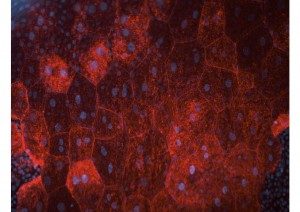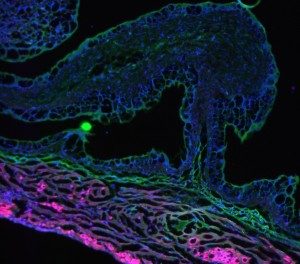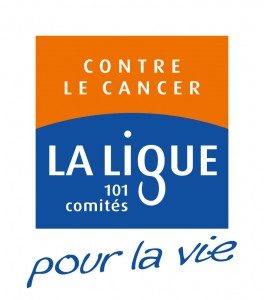Présentation
This project is focused on immunology of the bladder with two broad themes focused on the related topics of response to uropathogens and response to immunotherapy for bladder cancer. The two most prevalent diseases of the bladder are urinary tract infection (UTI), affecting nearly 50% of all women, and bladder cancer, which is the fourth most common maligna
Project 1: Why does urinary tract infection fail to induce protective immunity?
Urinary tract infection (UTI) is one of the most common bacterial infections and approximately half of all individuals infected will suffer recurrence. Development of efficient therapies has been impeded by the lack of knowledge of events leading to adaptive immunity.
In a survey of the naive immune compartment, we found that macrophages are the most abundant cell type, and very early during infection, they are the predominant cell to take up bacteria, possibly sequestering antigen from dendritic cells. Currently, our work is focused on understanding how adaptive responses are initiated and how macrophages impede these responses. These studies include the investigation of immune cell trafficking and antigen presentation, T cell activation, macrophage function, and approaches to improve the immune response to infection.
Project 2: How is tumor immunity induced by immunotherapy for bladder cancer?
Bladder cancer represents a tumor type with a significant unmet medical need. Intravesical immunotherapy with BCG, an attenuated vaccine strain used for the prevention tuberculosis, is one of the most successful therapies for no
We are interested in how to induce effective tumor immunity using immunotherapeutic approaches in bladder cancer. Intravesical BCG instillation is one such approach. Previously, we showed that in an experimental mouse model, BCG vaccination, administered prior to intravesical therapy, markedly accelerates the kinetics of bladder inflammation, leading to an improved response. Additionally, the presence of pre-existing BCG-specific T cells confers an improved BCG-mediated anti-tumor response in mice and humans. Our current focus is on understanding how BCG-specific T cells and macrophages influence the generation of tumor immunity.



